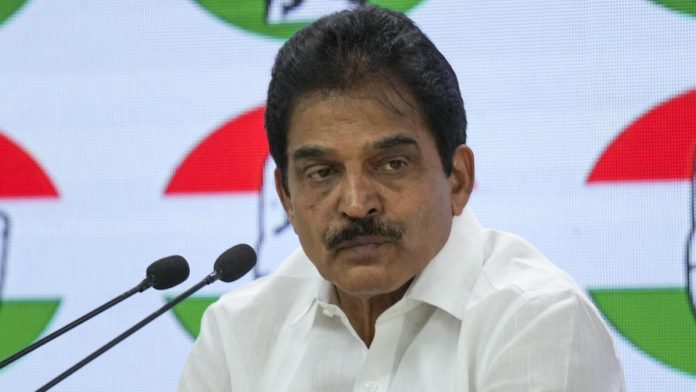NEW DELHI, Aug 8: The opposition on Thursday protested against the introduction of the Waqf (Amendment) Bill in the Lok Sabha, with Congress MP KC Venugopal calling it “draconian” and an “attack on the Constitution”.
Soon after Union Minority Affairs Minister Kiren Rijiju sought leave to introduce the bill, Venugopal — who had submitted notice to oppose its introduction — accused the government of violating freedom of religion and attacking the federal system through it.
“This is a draconian law and a fundamental attack on the Constitution,” Venugopal said.
He said people taught the BJP a lesson for its divisive politics but it was continuing with the same, keeping in mind the upcoming assembly elections in states such as Haryana and Maharashtra.
Samajawadi Party MP Mohibullah Nadvi said the bill was against freedom of religion.
He said appointing non-Muslims in the central Waqf council and other such bodies was violative of the rights of Muslims.
Opposing its introduction, Trinamool Congress (TMC) MP Sudip Bandhopadhyay said the bill was divisive, anti-constitutional and anti-federalism.
“This is against the Constitution, a religious minority and federalism. It shuns justice in every possible way,” DMK MP Kanimozhi said, opposing the bill’s introduction.
The bill to amend the law governing Waqf boards proposes far-reaching changes in the Wakf Act, 1995, including ensuring the representation of Muslim women and non-Muslims in such bodies.
The Waqf (Amendment) Bill also aims at renaming the act to the Unified Waqf Management, Empowerment, Efficiency and Development Act, 1995.
It was circulated among Lok Sabha members on Tuesday night.
According to its statement of objects and reasons, the bill seeks to omit Section 40 of the current law relating to the powers of the board to decide if a property is Waqf property.
It provides for a broad-based composition of the Central Waqf Council and the state Waqf boards and ensures the representation of Muslim women and non-Muslims in such bodies.
The bill also proposes the establishment of a separate board of Auqaf for the Boharas and Aghakhanis. The draft law provides for the representation of Shias, Sunnis, Bohras, Agakhanis and other backward classes among Muslim communities.
It also aims to clearly define ‘Waqf’ as “Waqf by any person practising Islam for at least five years and having ownership of such property”.
One of its objectives is streamlining the manner of registration of Waqfs through a central portal and database. A detailed procedure is established for mutation as per revenue laws with due notice to all concerned before recording any property as a Waqf property.
The Wakf Act, 1995, was brought to regulate ‘Auqaf (assets donated and notified as Waqf)’ by a ‘wakif (a person who dedicates a property for any purpose recognised by Muslim law as religious or charitable)’.
The law was last amended in 2013. (PTI)
Trending Now
E-Paper


